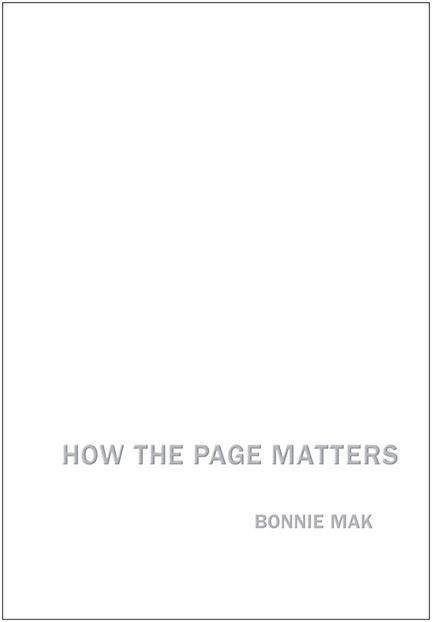Wolfgang Ernst: Digital Memory and the Archive (2012)
Filed under book | Tags: · archive, art, communication, computing, culture, data, history, information, internet, knowledge, machine, media, media archeology, media studies, media theory, memory, photography, radio, sound, storage, technology, television, temporality, time

“In the popular imagination, archives are remote, largely obsolete institutions: either antiquated, inevitably dusty libraries or sinister repositories of personal secrets maintained by police states. Yet the archive is now a ubiquitous feature of digital life. Rather than being deleted, e-mails and other computer files are archived. Media software and cloud storage allow for the instantaneous cataloging and preservation of data, from music, photographs, and videos to personal information gathered by social media sites.
In this digital landscape, the archival-oriented media theories of Wolfgang Ernst are particularly relevant. Digital Memory and the Archive, the first English-language collection of the German media theorist’s work, brings together essays that present Ernst’s controversial materialist approach to media theory and history. His insights are central to the emerging field of media archaeology, which uncovers the role of specific technologies and mechanisms, rather than content, in shaping contemporary culture and society.
Ernst’s interrelated ideas on the archive, machine time and microtemporality, and the new regimes of memory offer a new perspective on both current digital culture and the infrastructure of media historical knowledge. For Ernst, different forms of media systems—from library catalogs to sound recordings—have influenced the content and understanding of the archive and other institutions of memory. At the same time, digital archiving has become a contested site that is highly resistant to curation, thus complicating the creation and preservation of cultural memory and history. ”
Edited and with an Introduction by Jussi Parikka
Publisher University of Minnesota Press, 2012
Volume 39 of Electronic Mediations
ISBN 0816677670, 9780816677672
265 pages
Reviews: Liam Cole Young (Reviews in Cultural Theory, 2013), Peter Ward (Information & Culture, 2014).
For more from Wolfgang Ernst see Monoskop wiki.
Comment (0)Bonnie Mak: How the Page Matters (2011)
Filed under book | Tags: · book, codex, e-book, image, library, paratext, print, reading, text, typography

“From handwritten texts to online books, the page has been a standard interface for transmitting knowledge for over two millennia. It is also a dynamic device, readily transformed to suit the needs of contemporary readers. In How the Page Matters, Bonnie Mak explores how changing technology has affected the reception of visual and written information.
Mak examines the fifteenth-century Latin text Controversia de nobilitate in three forms: as a manuscript, a printed work, and a digital edition. Transcending boundaries of time and language, How the Page Matters connects technology with tradition using innovative new media theories. While historicizing contemporary digital culture and asking how on-screen combinations of image and text affect the way conveyed information is understood, Mak’s elegant analysis proves both the timeliness of studying interface design and the persistence of the page as a communication mechanism.”
Publisher University of Toronto Press, 2011
Studies in Book and Print Culture series
ISBN 080209760X, 9780802097606
ix+129 pages
Reviews: Martha W. Driver (Speculum, 2013), Martin G. Eisner (Renaissance Quarterly, 2013), Brett A. Hudson (Papers of the Bibliographical Society of America, 2014), Julie Holcomb (Information & Culture, 2012).
Interview with author: Gretchen E. Henderson (Ploughshares Literary Magazine, 2013).
PDF (scan; updated on 2023-6-5)
PDF (updated on 2020-10-7)
Geoff Waite: Nietzsche’s Corps/e: Aesthetics, Politics, Prophecy, or, the Spectacular Technoculture of Everyday Life (1996)
Filed under book | Tags: · aesthetics, communism, esotericism, everyday, left, life, philosophy, politics

“Appearing in 1996 between two historical touchstones—the alleged end of communism and the 100th anniversary of Nietzsche’s death—this book offers a provocative hypothesis about the philosopher’s afterlife and the fate of leftist thought and culture. At issue is the relation of the dead Nietzsche (corpse) and his written work (corpus) to subsequent living Nietzscheanism across the political spectrum, but primarily among a leftist corps that has been programmed and manipulated by concealed dimensions of the philosopher’s thought. If anyone is responsible for what Geoff Waite maintains is the illusory death of communism, it is Nietzsche, the man and concept.
Waite advances his argument by bringing Marxist—especially Gramscian and Althusserian—theories to bear on the concept of Nietzsche/anism. But he also goes beyond ideological convictions to explore the vast Nietzschean influence that proliferates throughout the marketplace of contemporary philosophy, political and literary theory, and cultural and technocultural criticism. In light of a philological reconstruction of Nietzsche’s published and unpublished texts, Nietzsche’s Corps/e shuttles between philosophy and everyday popular culture and shows them to be equally significant in their having been influenced by Nietzsche—in however distorted a form and in a way that compromises all of our best interests.
Controversial in its “decelebration” of Nietzsche, this remarkable study asks whether the postcontemporary age already upon us will continue to be dominated and oriented by the haunting spectre of Nietzsche’s corps/e. Philosophers, intellectual historians, literary theorists, and those interested in western Marxism, popular culture, Friedrich Nietzsche, and the intersection of French and German thought will find this book both appealing and challenging.”
Publisher Duke University Press, 1996
ISBN 0822317192, 9780822317197
xii+564 pages
Review: Douglas Kellner (Illuminations, (2)), Ricardo Dominguez (Thing, 1996), Carl Pletsch and James A. Winders (Modernism/modernity, 1998), Tracy B. Strong (New Nietzsche Studies, 1998), Paul Bishop (Modern Language Rev, 1999), Richard E. Joines (Rethinking Marxism, 2001, (2)).
See also Pierre Klossowski’s Nietzsche and the Vicious Circle (1969–)
Comment (0)
